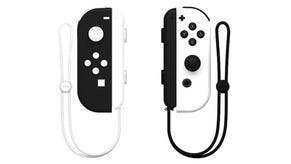PSN ID theft aftermath a "trust" issue
Can gamers forgive and forget?
The Great PlayStation Network Identity Robbery, as dramatic as it sounds, won't have left Sony too much out of pocket.
The far bigger issue here, analysts canvassed by Eurogamer agree, is trust.
"Sony has a small financial issue, and a large PR issue," declared Wedbush Morgan analyst Michael Pachter.
"Sony has to ensure that this won't happen again, and that means that they will have to raise the security level for PSN to well above the industry standard, and will have to make sure that consumers know that their personal information is secure."
Screen Digest analyst Piers Harding-Rolls pin-pointed "rebuilding consumer and partner trust" as the "most expensive element" of Sony's clean-up operation.
"It is likely that the company will increase marketing spend to rebuild the integrity of the brand and build trust with its consumers," Harding-Rolls predicted. "Again, this will have an impact on the company's margins in the coming weeks and months."
As widely documented, hackers broke into PlayStation Network on 17th April, compromising users personal information including, possibly, their credit card details. It then took Sony nine days to publicly confess to the extent of the security breach.
Buying back your trust, Pachter predicted, could cost as much as $50 million - a sum "not devastating to Sony".
Harding-Rolls agreed, saying that the "increased expenditure on securing and safeguarding PSN and its users' data" will be "relatively small in company terms".
But couple that with lost business for the eight days of downtime (plus another four if the planned 3rd May PSN reinstatement is stuck to) and Sony Europe will feel the pinch, explained Harding-Rolls.
"It is likely that there will be some residual drop in PSN and PS3-based business following this event, but at this stage it is impossible to quantify how big that will be," said Harding-Rolls.
"If the drop in business is mostly contained within PSN sales, then the impact is likely to be relatively minimal due to the scale of that business."
In the US, Sony will be liable to refund credit card transactions traced back to those stolen via PlayStation Network. The laws are different here in the UK, where credit card companies and online merchants (shops like Amazon) will take the fall, depending on how the transactions are made.
"[Sony] probably lost $10 million a week in revenue and $3 million a week in profit," guessed Pachter. "They will have to reimburse PS plus members and will likely have to give away some free virtual items (downloads, PS plus memberships) to all members to keep them calm.
"Their liability for identity theft and credit card fraud is unlimited, but likely won't be that much, as the hackers are not going to suddenly go on a buying spree with 70 million credit cards; most likely, the hackers broke in for fun, not for profit, and very few people will really suffer."
While it has undoubtedly been a PR disaster for the platform holder, EEDAR VP Jesse Divnich called on users to keep the situation in perspective, applauding Sony for how it has dealt with the crisis.
"To date they have gone above and beyond their legal requirements on keeping consumers informed and this is something we should all appreciate in light of these events," he said, insisting it "could have happened to anyone one."
Security breaches such as these take place frequently, he argued, and Sony had behaved responsibly in choosing to inform its customers in the manner in which it did.
"As the shift towards a cashless society continues, we must be aware that security breaches of our personal information will continue to occur and that no outlet can provide a 100 per cent guarantee on the safety of our personal information.
"What occurred on the PlayStation Network happens daily throughout the world; many of which goes unreported or unfounded and it would be naïve to think that our personal information hasn't already been compromised elsewhere.
"The only difference with the PlayStation Network's breach is Sony's good ethical standing as a corporate citizen to inform their consumers of the breach of their network."
It might come as scant comfort after what has no doubt been a hellish week at Sony HQ but Divnich speculated that, if handled appropriately, PSN users would eventually forgive and forget.
He predicted that Sony will dedicate huge resources to the PlayStation online experience, perhaps offering users some form of exclusive content to help restore confidence and good will.
"As a parallel, much like the Xbox 360 'red ring of death' situation, consumers - especially gamers - are forgiving if they are treated correctly in difficult situations such as these," he explained.
Meanwhile, as Sony suffers, an unscathed Microsoft is taking the opportunity to beef up Xbox Live security. Could the same thing have happened there? We'll probably never know.








